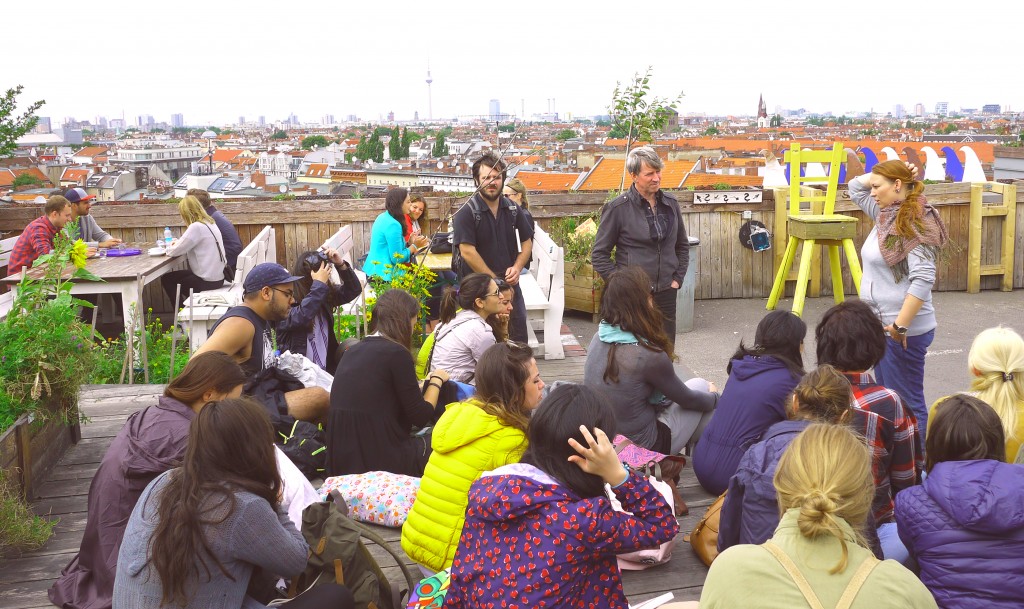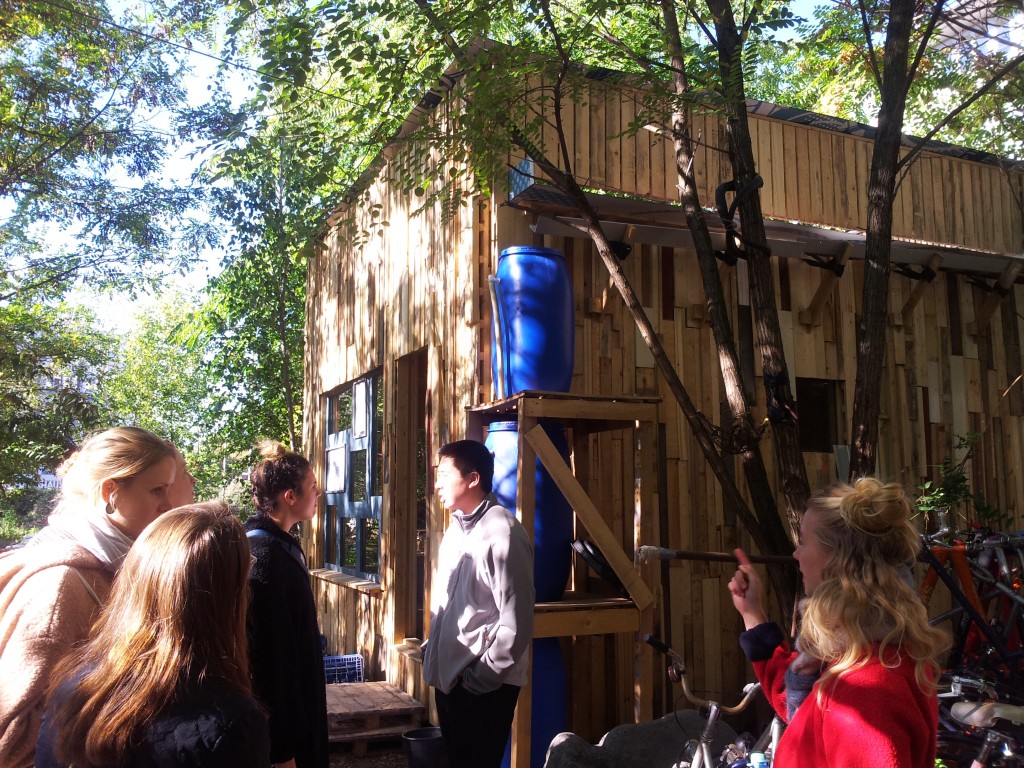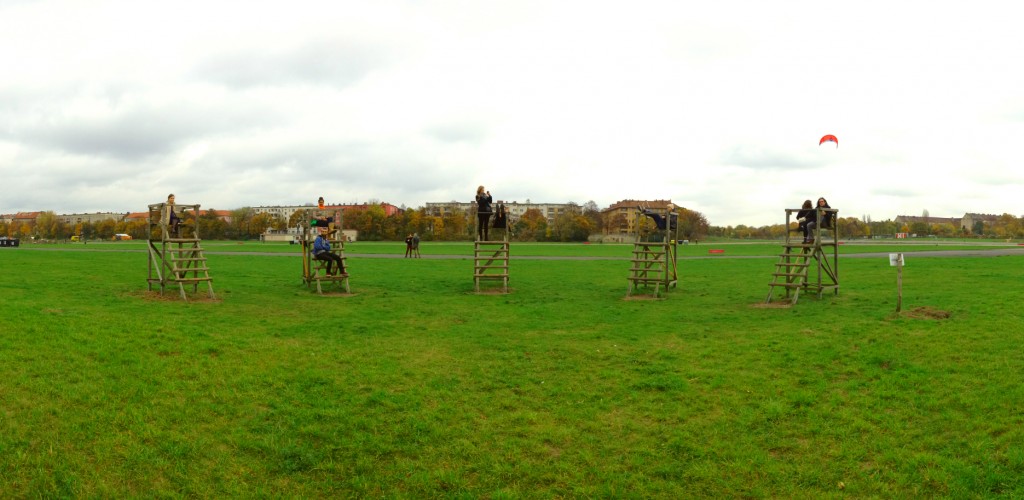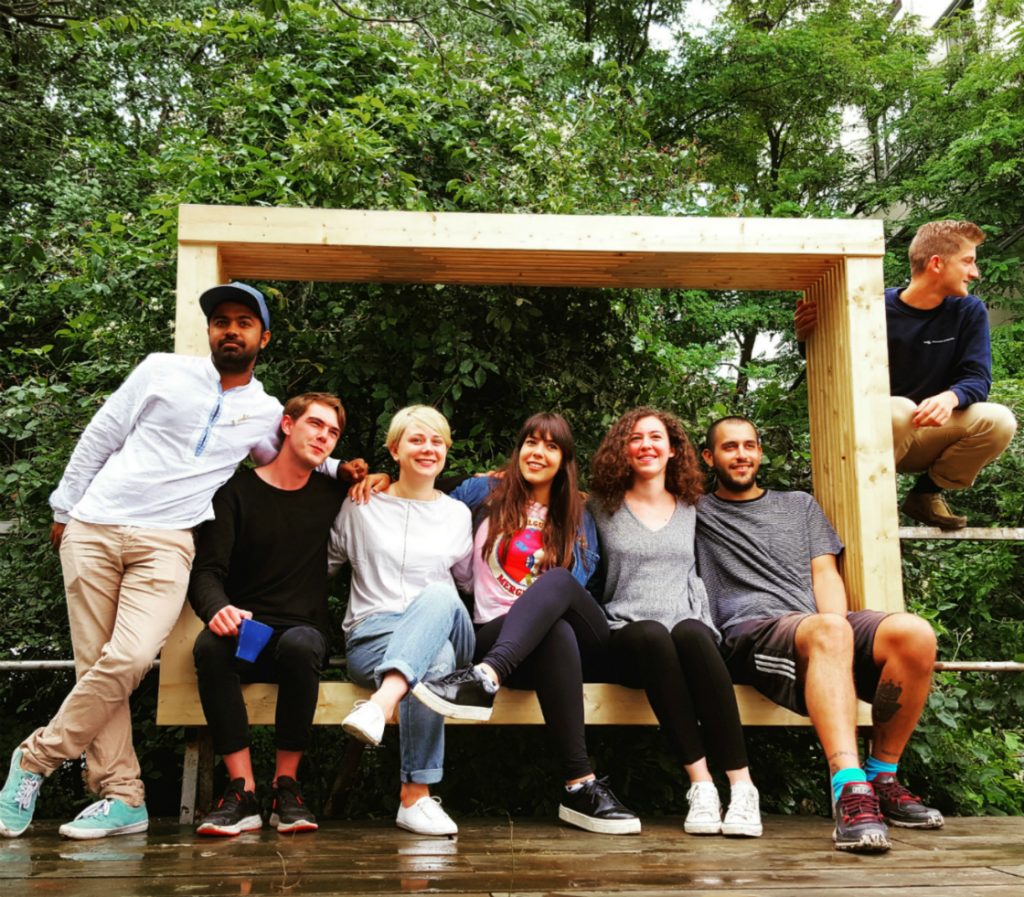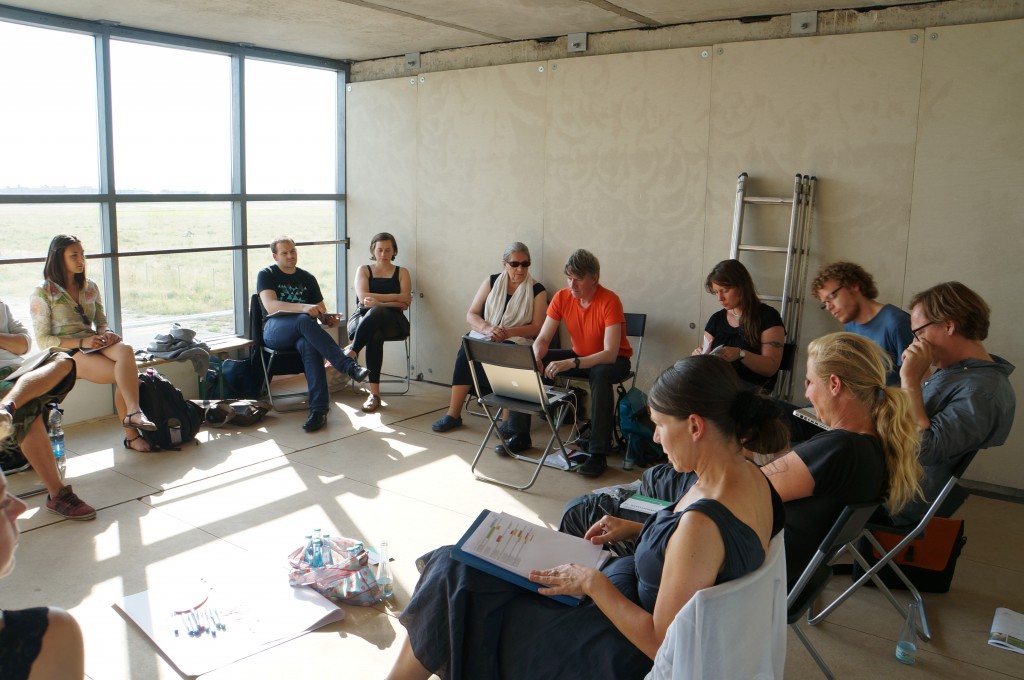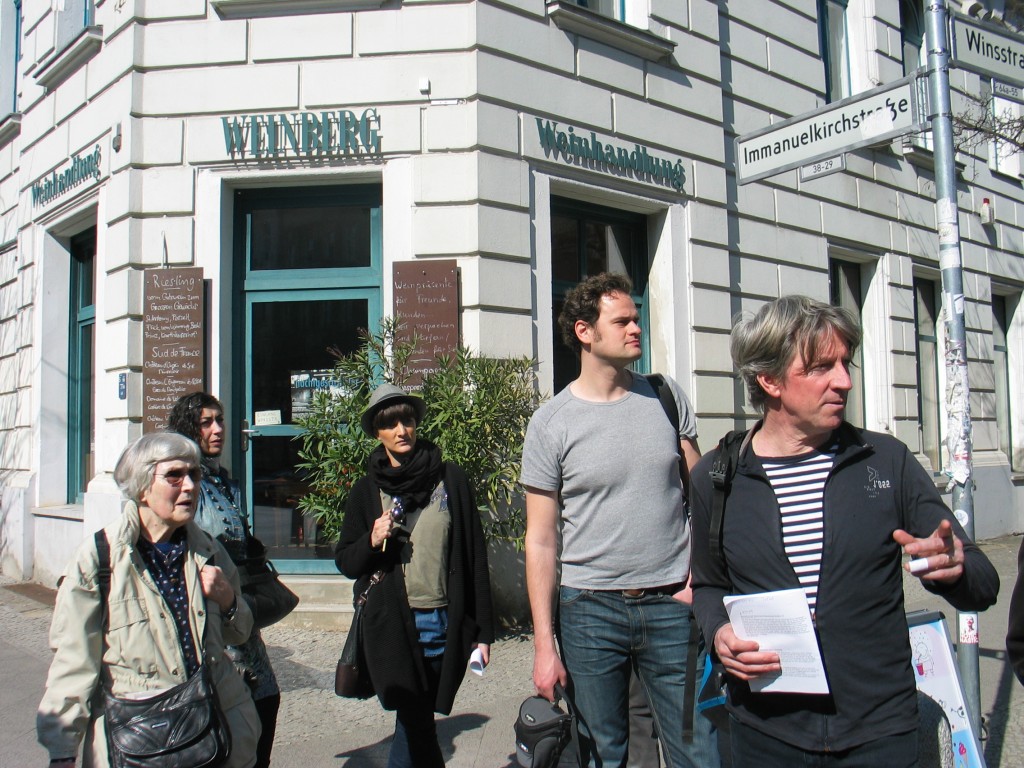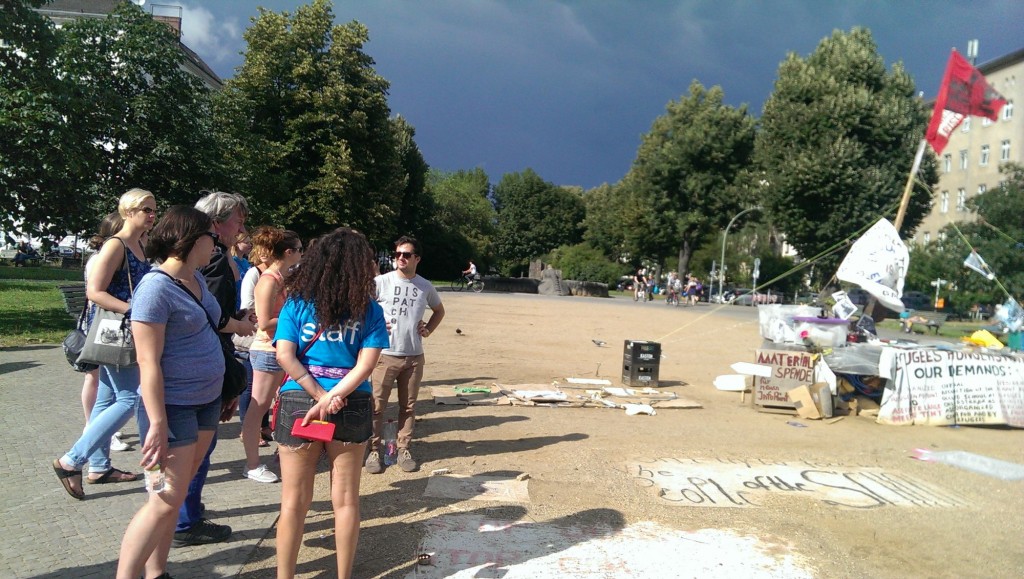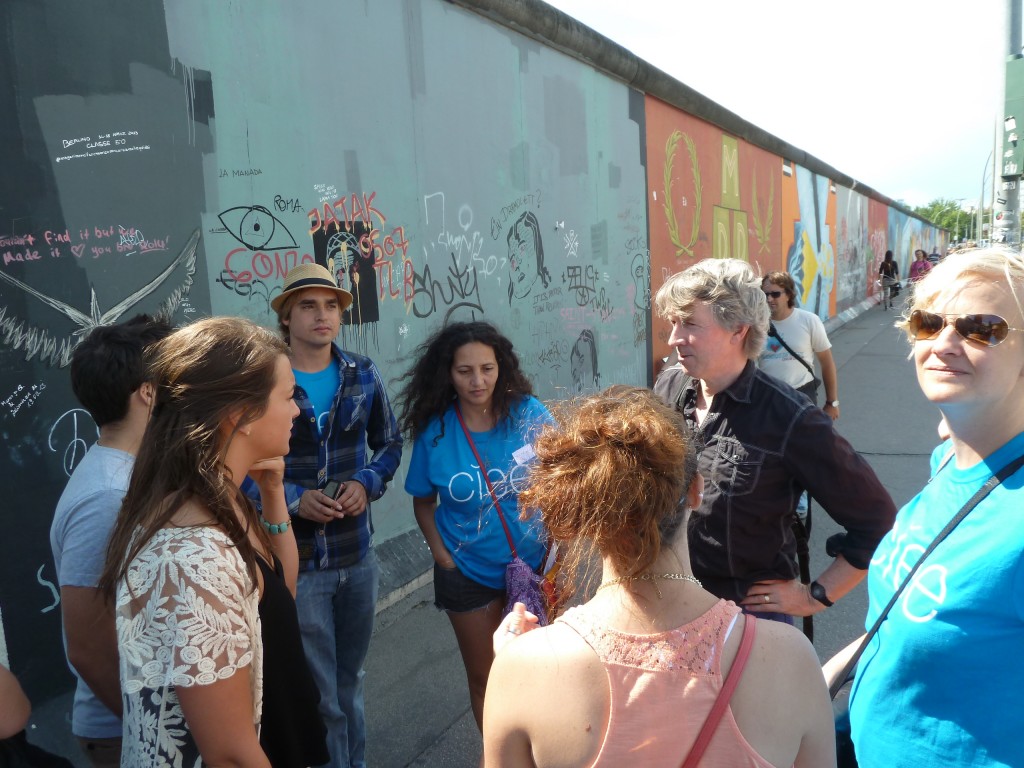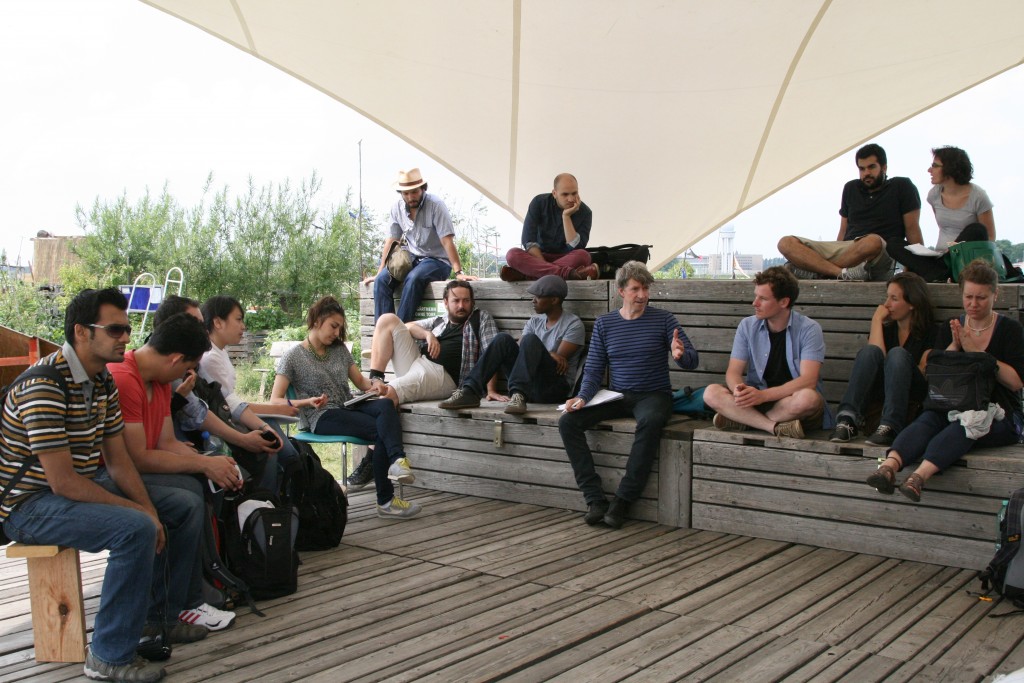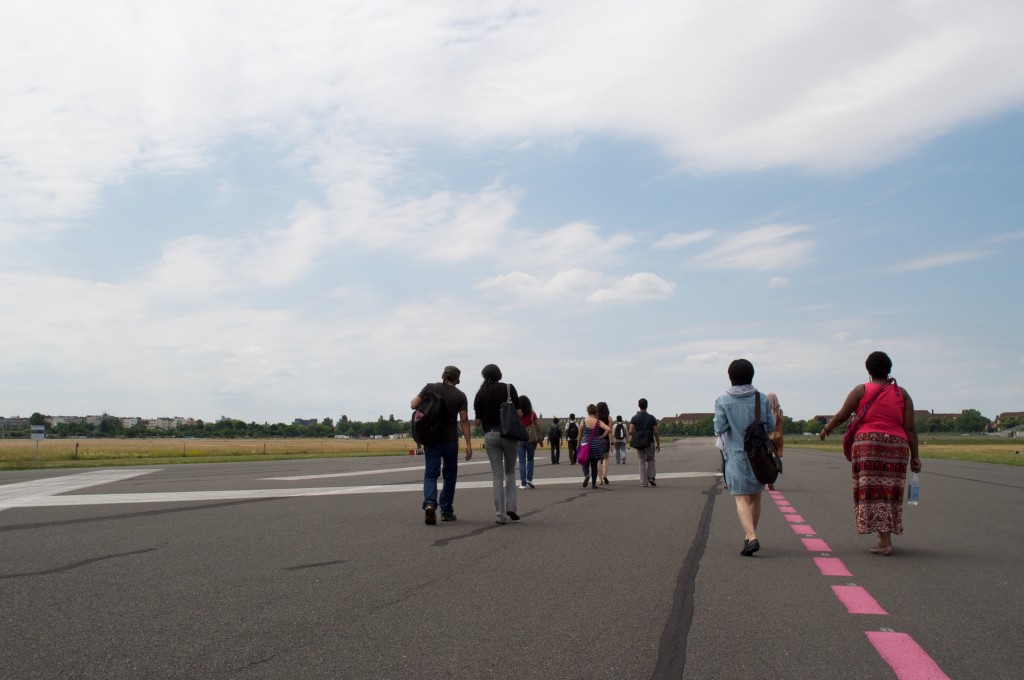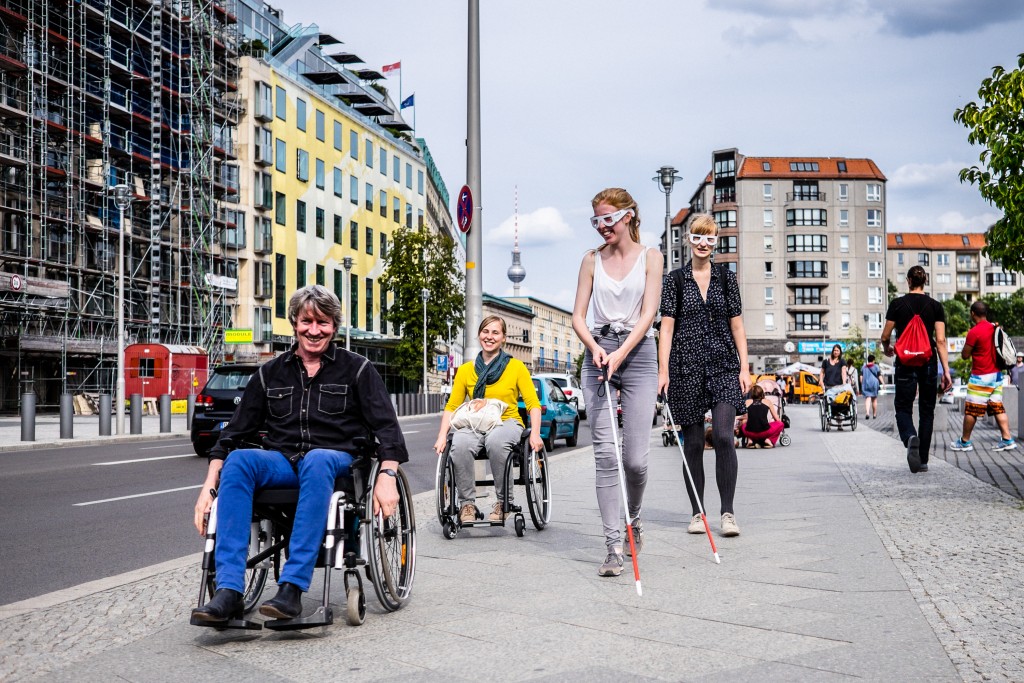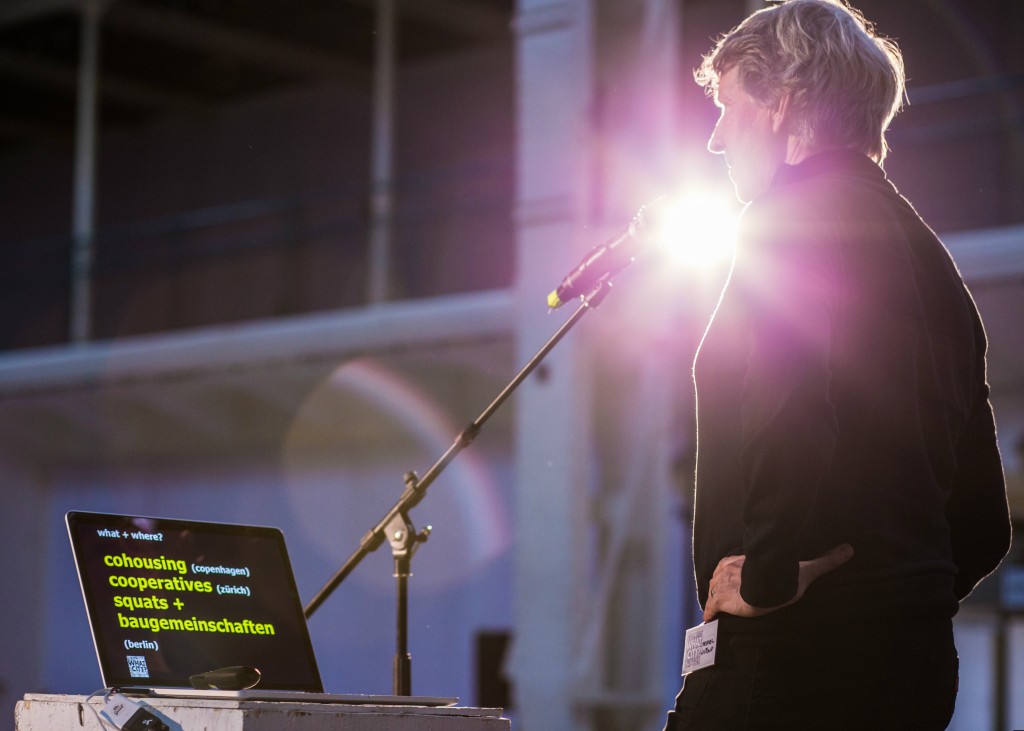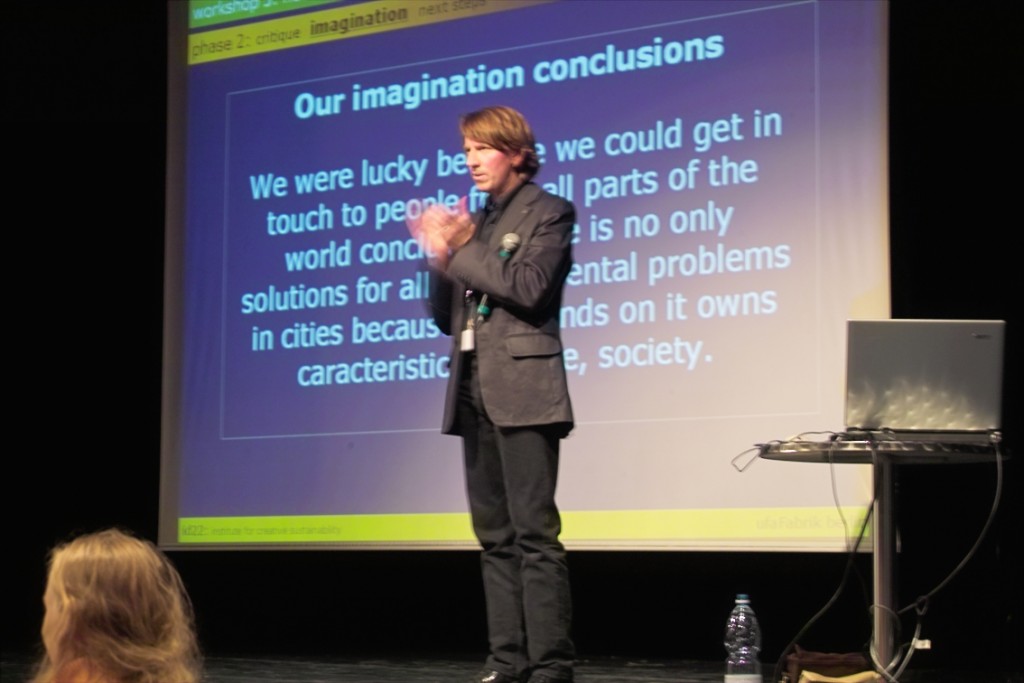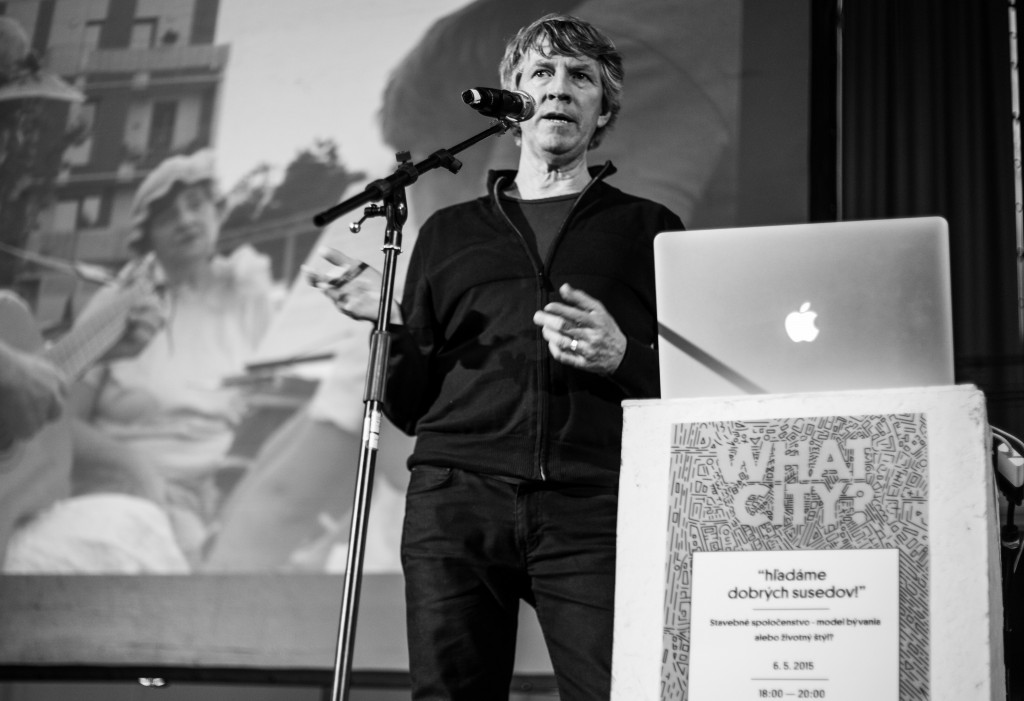Bildungsangebote
Lehraufträge
Education should be participatory, interactive and enjoyable!
Learning is not just about collecting information, but more importantly about finding inspiration and orientation in life!
I have been teaching for decades now, mostly in Berlin but also in other cities such as Seattle.
I emphasize education outside of the classroom, and learning in community-powered locations such as the Spreefeld.
Project visits, tours and excursions, on foot, bike and boat, are always part of the program.
Learning is not just about collecting information, but more importantly about finding inspiration and orientation in life!
I have been teaching for decades now, mostly in Berlin but also in other cities such as Seattle.
I emphasize education outside of the classroom, and learning in community-powered locations such as the Spreefeld.
Project visits, tours and excursions, on foot, bike and boat, are always part of the program.
Berlin Housing Survey . TU Urban Management
Develop an understanding of the current, dynamic Berlin housing situation, as well as the recent history of housing in this region.
Learn about and exchange ideas and information regarding a variety of Berlin housing production and development strategies.
These include cooperative, non-profit, self-organized, municipal, community-oriented, sustainable, mixed-use, participatory and integrative housing for refugees and others.
Compare approaches and experiences among different Berlin actors and initiatives.
Experts will present their experiences and there will be visits to a number of housing projects as well as discussions on current policies, concepts and texts.
Through documenting, studying, comparing and evaluating, students will develop their own conclusions, ideas and definitions with respect to a variety of approaches to developing and managing housing.
We will be reviewing and documenting approaches and projects with respect to topics such as:
government policies and regulations
ownership and management alternatives, financing strategies
affordability and social interests, exclusivity and inclusivity
participation, self-organisation and process in housing production
community and neighborhood orientation
ecological building methods, energy efficiency
integration and inclusion, housing for refugees
A number of exemplary case studies will be reviewed, and through this significant approaches to developing and managing housing in Berlin will be compared.
Learn about and exchange ideas and information regarding a variety of Berlin housing production and development strategies.
These include cooperative, non-profit, self-organized, municipal, community-oriented, sustainable, mixed-use, participatory and integrative housing for refugees and others.
Compare approaches and experiences among different Berlin actors and initiatives.
Experts will present their experiences and there will be visits to a number of housing projects as well as discussions on current policies, concepts and texts.
Through documenting, studying, comparing and evaluating, students will develop their own conclusions, ideas and definitions with respect to a variety of approaches to developing and managing housing.
We will be reviewing and documenting approaches and projects with respect to topics such as:
government policies and regulations
ownership and management alternatives, financing strategies
affordability and social interests, exclusivity and inclusivity
participation, self-organisation and process in housing production
community and neighborhood orientation
ecological building methods, energy efficiency
integration and inclusion, housing for refugees
A number of exemplary case studies will be reviewed, and through this significant approaches to developing and managing housing in Berlin will be compared.
CIEE Design + Sustainability Seminar
| Global Institute Berlin
The course investigates a series of interrelated themes of fundamental importance to urban development:
local and international movements are further developing around ideas of direct participation, self-organization and urban democracy.
urban, architectural and developmental theories are fragmenting and competing for attention, such as the Common Good, New Municipalism, Right to the City and Circular Economy strategies.
political will and political failure in the determination of urban policy demands attention. What combination of top-down and bottom-up is appropriate?
coordinated city-making including co-housing, community gardening, shared economy, etc.
demographic challenges including ageing and diversifying populations.
conflicting patterns of gentrification, segregation, displacement, wealth and poverty.
the reemergence of the pedestrian and bicycle-friendly city.
continued consumption of oil and non-renewable energy and centralization of energy infrastructures - paralleled by movements to localize and decentralize control of energy and resource management.
the alarming increase of CO2 emissions and the consequent alterations to the earth's climatic equilibrium are no longer phenomena that can be ignored by architects and urban planners, also calling for adaptation strategies.
local and international movements are further developing around ideas of direct participation, self-organization and urban democracy.
urban, architectural and developmental theories are fragmenting and competing for attention, such as the Common Good, New Municipalism, Right to the City and Circular Economy strategies.
political will and political failure in the determination of urban policy demands attention. What combination of top-down and bottom-up is appropriate?
coordinated city-making including co-housing, community gardening, shared economy, etc.
demographic challenges including ageing and diversifying populations.
conflicting patterns of gentrification, segregation, displacement, wealth and poverty.
the reemergence of the pedestrian and bicycle-friendly city.
continued consumption of oil and non-renewable energy and centralization of energy infrastructures - paralleled by movements to localize and decentralize control of energy and resource management.
the alarming increase of CO2 emissions and the consequent alterations to the earth's climatic equilibrium are no longer phenomena that can be ignored by architects and urban planners, also calling for adaptation strategies.
Stadtführungen
I organize tours, project visits and discussions especially to get people into contact with Berlin’s unique, local initiatives: open-source-urbanism, Social Ecology, CoHousing, Community Gardens, Community Land Trust, Common Good Initiatives, ecological architecture, alternative cultural projects and more.
Vorträge + Präsentationen
Facilitating a great discussion is definitely one of my main objectives -
but giving a great presentation is also a challenge I like to take on every now and then.
I have been giving talks at conferences and other events for many years now,
dealing with topics from CoHousing and Inclusion to Creative Sustainability, and from Urban Democracy to Process-Oriented Urban Design and Development.
but giving a great presentation is also a challenge I like to take on every now and then.
I have been giving talks at conferences and other events for many years now,
dealing with topics from CoHousing and Inclusion to Creative Sustainability, and from Urban Democracy to Process-Oriented Urban Design and Development.
Publikationen
Social-Ecological Cooperative Housing – eBook
SOCIAL-ECOLOGICAL COOPERATIVE HOUSING
Gemeinschaftliches, transformatives Bauen und Wohnen
Von Bodenspekulation und Mietenexplosion bis hin zu Klimawandel und sozialer Ungleichheit: In einer Zeit sich überlagernder Krisen ist es notwendiger denn je, unsere Art zu wohnen und zu teilen sowie das Eigentum an Grund und Boden neu zu denken.
Gemeinschaftliches, transformatives Bauen und Wohnen
Von Bodenspekulation und Mietenexplosion bis hin zu Klimawandel und sozialer Ungleichheit: In einer Zeit sich überlagernder Krisen ist es notwendiger denn je, unsere Art zu wohnen und zu teilen sowie das Eigentum an Grund und Boden neu zu denken.
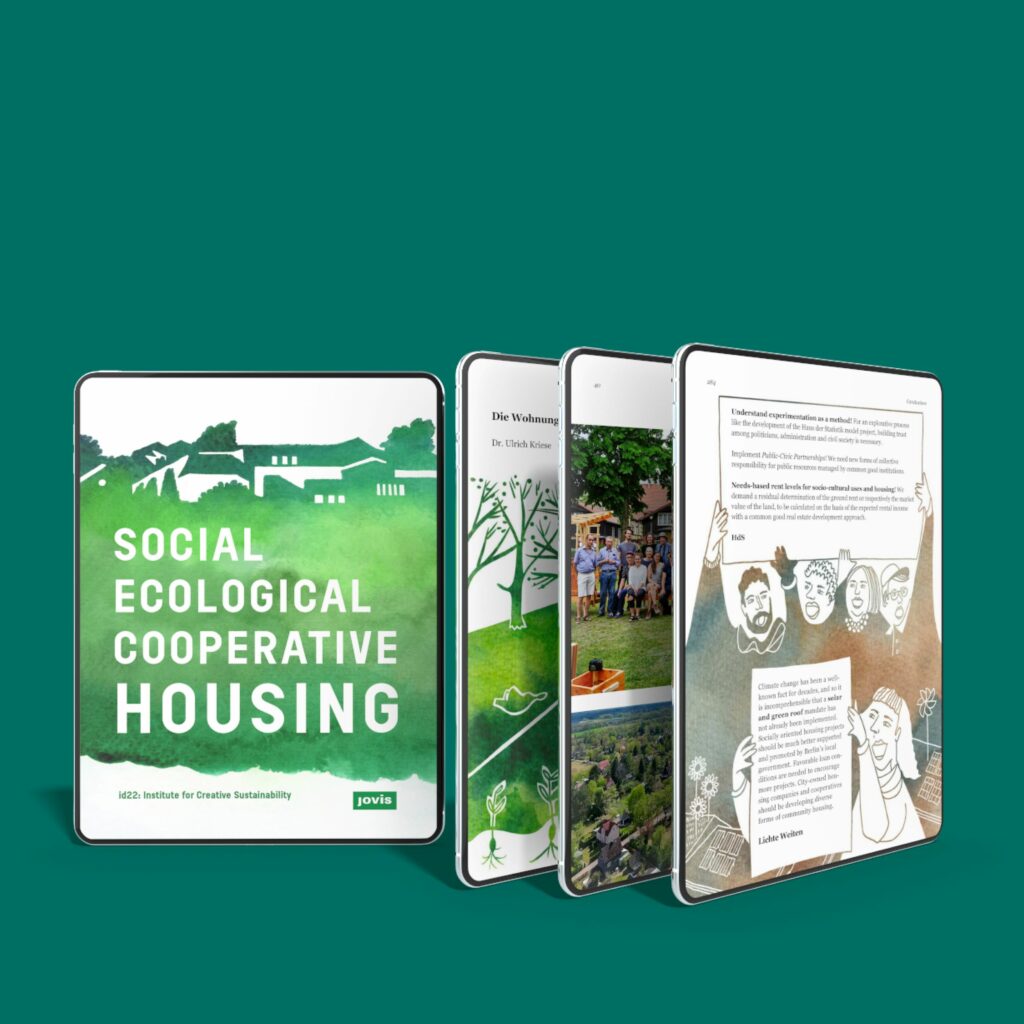
SOCIAL-ECOLOGICAL COOPERATIVE HOUSING
Gemeinschaftliches, transformatives Bauen und Wohnen
Die Umsetzung eines sozial-ökologischen Ansatzes beim Wohnen fordert uns auf, gewohnte Denkmuster zu durchbrechen und die schnell wachsenden und sich überschneidenden Krisen, die unsere Welt beeinflussen, ganzheitlich anzugehen. Die Entwicklung nachhaltigerer Wohnformen bedeutet nicht nur die Effizienz zu steigern, sondern auch dafür zu sorgen, dass Suffizienz in der Art und Weise, wie wir miteinander teilen, leben und arbeiten, eine zentrale Rolle spielt. Dies lenkt die Aufmerksamkeit auf genossenschaftliches Woh-
nen als erschwingliches und attraktives Modell, das mit gemeinschaftsbasiertem, nicht spekulativem Grundbesitz arbeitet. Transformative Strategien und die Qualität des Wohnens und Lebens haben Vorrang vor Quantität und Wachstum. Synergien zwischen der sozialen und der ökologischen Dimension müssen erschlossen werden, einschließlich der Kombination von Potenzialen lokaler, gemeinschaftlicher Entwicklungen mit technologischem Fortschritt.
Social-Ecological Cooperative Housing stellt wegweisende genossenschaftliche Wohnprojekte in Basel, Berlin, Wien und Zürich vor.
Die porträtierten Initiativen und alternativen Eigentumsmodelle zeigen das Potenzial gemeinschaftlicher Praktiken für eine notwendige sozial-ökologische Transformation des Bauens und Wohnens auf. Das interaktive E-Book ermöglicht es den Leser:innen, einzelne Themen je nach Interesse zu vertiefen und regt damit auch zum eigenen Handeln an.
Gemeinschaftliches, transformatives Bauen und Wohnen
Die Umsetzung eines sozial-ökologischen Ansatzes beim Wohnen fordert uns auf, gewohnte Denkmuster zu durchbrechen und die schnell wachsenden und sich überschneidenden Krisen, die unsere Welt beeinflussen, ganzheitlich anzugehen. Die Entwicklung nachhaltigerer Wohnformen bedeutet nicht nur die Effizienz zu steigern, sondern auch dafür zu sorgen, dass Suffizienz in der Art und Weise, wie wir miteinander teilen, leben und arbeiten, eine zentrale Rolle spielt. Dies lenkt die Aufmerksamkeit auf genossenschaftliches Woh-
nen als erschwingliches und attraktives Modell, das mit gemeinschaftsbasiertem, nicht spekulativem Grundbesitz arbeitet. Transformative Strategien und die Qualität des Wohnens und Lebens haben Vorrang vor Quantität und Wachstum. Synergien zwischen der sozialen und der ökologischen Dimension müssen erschlossen werden, einschließlich der Kombination von Potenzialen lokaler, gemeinschaftlicher Entwicklungen mit technologischem Fortschritt.
Social-Ecological Cooperative Housing stellt wegweisende genossenschaftliche Wohnprojekte in Basel, Berlin, Wien und Zürich vor.
Die porträtierten Initiativen und alternativen Eigentumsmodelle zeigen das Potenzial gemeinschaftlicher Praktiken für eine notwendige sozial-ökologische Transformation des Bauens und Wohnens auf. Das interaktive E-Book ermöglicht es den Leser:innen, einzelne Themen je nach Interesse zu vertiefen und regt damit auch zum eigenen Handeln an.
- Herausgeber: id22: Institute for Creative Sustainability
- Sprache(n): English/German
- Seitenzahl: 303
- Format (Art): eBook
- Format (Größe): 17 × 24 cm
- isbn: 9783868598353
- Bestellungsaddress: https://www.jovis.de/en/book/9783868598353
CoHousing Inclusive
Selbstorganisiertes, gemeinschaftliches Wohnen für alle. Experimentelle Wohnformen – CoHousing Cultures – kommen immer mehr im Mainstream an. Aber inwieweit sind sie zugänglich und leistbar für alle: Menschen mit unterschiedlichen Einkommenslagen, mit und ohne Fluchterfahrung, mit und ohne Behinderung? Selbstbestimmte, soziale Wohnprojekte entwickeln bereits solche vielfältigen wie nachhaltigen Nachbarschaften und werden nicht nur zivilgesellschaftlich, sondern verstärkt auch von Wohnungsunternehmen wie Genossenschaften gefördert.
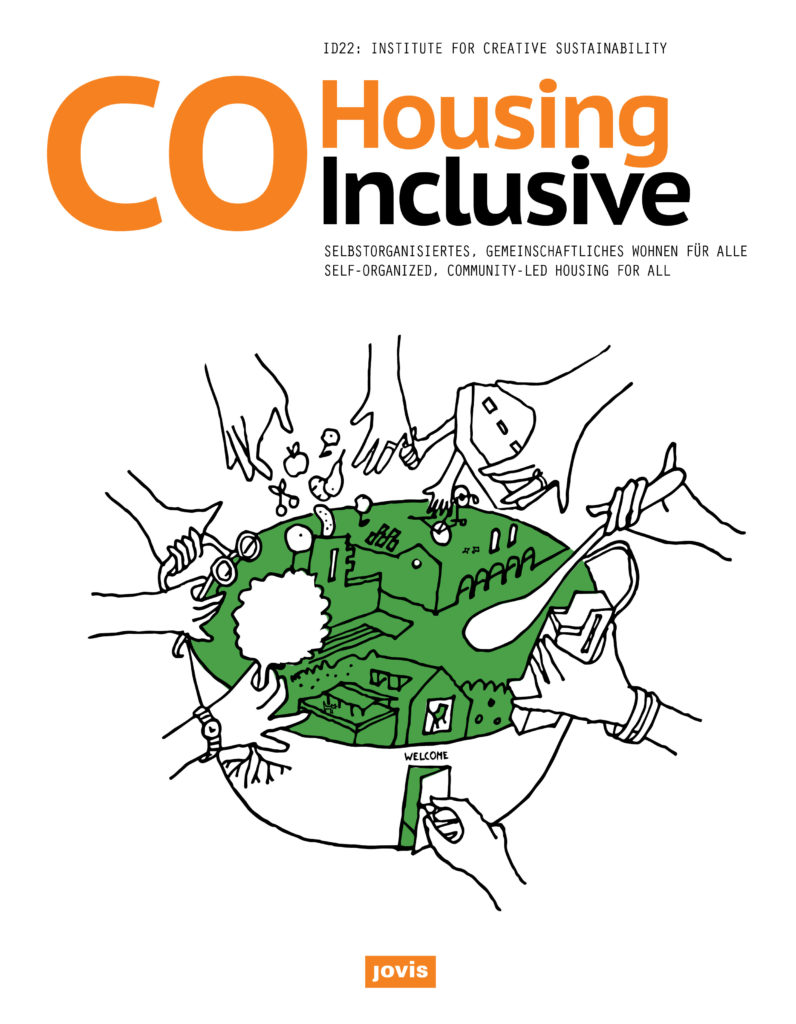
- Herausgeber: id22 / Dr. Michael LaFond & Larisa Tsvetkova
- Sprache(n): German / English
- Seitenzahl: 240
- Format (Art): eBook
- Format (Größe): 21 x 27 cm
- isbn: 9783868594621
- Bestellungsaddress: https://www.jovis.de/de/book/9783986120153
Stadtlabor Berlin
Die Themen des selbstorganisierten Wohnens und der partizipativen Stadtentwicklung in Berlin sind von unterschiedlichsten Seiten beleuchtet werden. Zu Wort kommen (Wohn)Experten und Engagierte, Stadtentwickler und Politik. Vergangenheit und Gegenwart werden diskutiert, bereits bestehende Netzwerkstrukturen wie z.B. das Wohnportal (inzwischen CoHousing) Berlin und das Bundesportal vorgestellt.
Es wird in die Zukunft geschaut. Trotz der im Jahr 2013 plötzlich abgesagten IBA 2020 vernetzen sich ungehindert Akteure des selbstorganisierten Wohnens und gründen Strukturen – partizipativ und aufbauend auf vielen Jahren Erfahrungen und einer Vielzahl von selbstverwalteten Wohnprojekten. Nicht die einzelnen Wohnhäuser sind in den Vordergrund gestellt, sondern im Sinne einer DIY-IBA die Bündelung von Kräften und die nachhaltige Entwicklung eines Modellquartiers. Mit dieser Jubiläumsausgabe des wohnbund Magazins wünschen wir allen Lesern, den vielen Studenten sowie Experten, Politikern und natürlich auch den Aktivisten, eine Fülle von Ideen und das Glück, selbst beteiligt zu sein am eigenen Wohntraumprojekt!
Es wird in die Zukunft geschaut. Trotz der im Jahr 2013 plötzlich abgesagten IBA 2020 vernetzen sich ungehindert Akteure des selbstorganisierten Wohnens und gründen Strukturen – partizipativ und aufbauend auf vielen Jahren Erfahrungen und einer Vielzahl von selbstverwalteten Wohnprojekten. Nicht die einzelnen Wohnhäuser sind in den Vordergrund gestellt, sondern im Sinne einer DIY-IBA die Bündelung von Kräften und die nachhaltige Entwicklung eines Modellquartiers. Mit dieser Jubiläumsausgabe des wohnbund Magazins wünschen wir allen Lesern, den vielen Studenten sowie Experten, Politikern und natürlich auch den Aktivisten, eine Fülle von Ideen und das Glück, selbst beteiligt zu sein am eigenen Wohntraumprojekt!
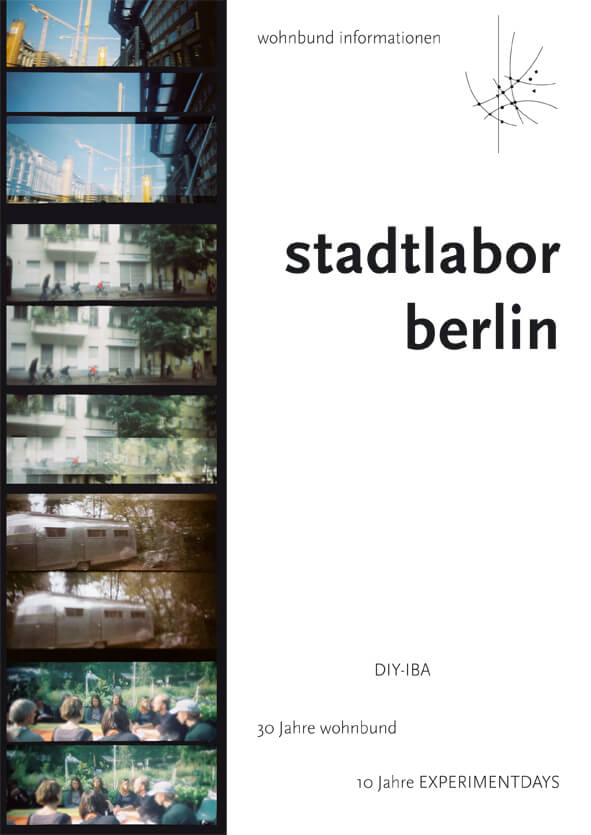
30 Jahre wohnbund. 10 Jahre EXPERIMENTDAYS. DIY-IBA.
Zum 30. Geburtstag des wohnbund e.V. und zu den bereits seit zehn Jahren bestehenden EXPERIMENTDAYS wurde von der wohnbund Redaktion, von id22: Institut für kreative Nachhaltigkeit und von der Netzwerkagentur GenerationenWohnen, unterstützt von der Stiftung trias, eine Jubiläumsausgabe der wohnbund Informationen erstellt.
Zum 30. Geburtstag des wohnbund e.V. und zu den bereits seit zehn Jahren bestehenden EXPERIMENTDAYS wurde von der wohnbund Redaktion, von id22: Institut für kreative Nachhaltigkeit und von der Netzwerkagentur GenerationenWohnen, unterstützt von der Stiftung trias, eine Jubiläumsausgabe der wohnbund Informationen erstellt.
- Herausgeber: wohnbund eV; id22: Institut für kreative Nachhaltigkeit, Netzwerkagentur GenerationWohnen
- Sprache(n): deutsch
- Seitenzahl: 52
- Format (Art): Broschüre
- Format (Größe): 21 x 29,7 cm
CoHousing Cultures Handbuch und Ausstellung
CoHousing Cultures sind selbstorganisierte, gemeinschaftliche und nachhhaltige Wohnformen. Auf internationaler Ebene erlangt CoHousing eine wachsende Bekanntheit und stellt dabei die Bandbreite verschiedene regionaler Wohnkulturen dar. Interesse an Selbstbestimmung und Zusammenarbeit sowie das leidenschaftliche Engagement einer größer werdenden Zahl von Menschen in vielen Städten füllt diese einzigartige Bewegung mit Leben. Innovative CoHousing Projekte sind integrativ, nicht spekulativ und offen gegenüber der Nachbarschaft. Innovatives Wohnen wird durch die Suche nach einem ökologischen, bezahlbaren und sozial gestalteten Zuhause motiviert.
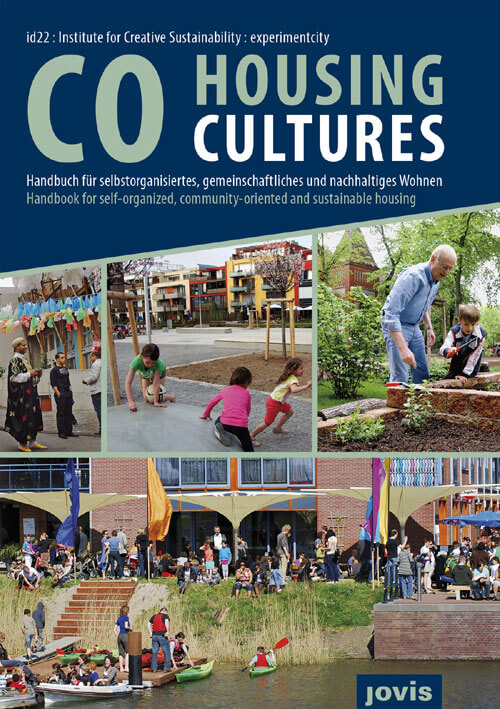
Die Ausstellung und das Buch illustrieren eine bunte Vielzahl europäischer Beispiele: Die barrierefreie Umgestaltung einer alten Schule durch eine Genossenschaft in Berlin, die kollektive Wohnform für die 50+ Generation in Stockholm, das von und für Migranten geplante Passivhaus in Brüssel, und viele mehr.
Wenn Sie die CoHousing Ausstellung bei Ihrer Veranstaltung präsentieren möchten, schreiben Sie uns eine Anfrage an: institute(at)id22.net und wir setzen uns mit Ihnen in Verbindung.
Wenn Sie die CoHousing Ausstellung bei Ihrer Veranstaltung präsentieren möchten, schreiben Sie uns eine Anfrage an: institute(at)id22.net und wir setzen uns mit Ihnen in Verbindung.
- Herausgeber: id22/Jovis Verlag
- Sprache(n): DEUTSCH/ENGLISCH
- Seitenzahl: 208
- Format (Art): Softcover
- Format (Größe): 13 x 18,3 cm
- isbn: 9783868591484
